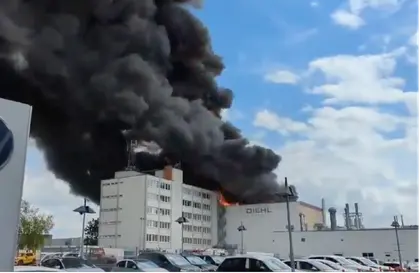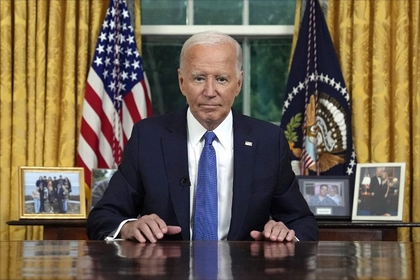European intelligence agencies believe that Russian President Vladimir Putin is planning violent acts of sabotage across Europe as part of a broader strategy to confront the West.
They say that evidence points to Russia stepping up preparations for covert bombing, arson, and sabotage operations on key European infrastructure, with little concern about the likelihood of civilian casualties.
JOIN US ON TELEGRAM
Follow our coverage of the war on the @Kyivpost_official.
Germany's domestic intelligence chief, Thomas Haldenwang, acknowledged sporadic attacks over the years but that there was now a growing threat with Russia ready to conduct significantly increased acts of sabotage.
Haldenwang told a recent security conference: “We assess the risk of state-controlled acts of sabotage to be significantly increased.” He went on to say that Russia feels “comfortable conducting operations on European soil with a high potential for causing damage.”
He was speaking shortly after German authorities had arrested two individuals with dual German-Russian citizenship in Bavaria who were allegedly plotting attacks on military and logistics sites in Germany on behalf of Russia.
This followed other incidents likely instigated by Russia, including the arrest of two men in the UK in late April who had set fire to a warehouse containing humanitarian aid for Ukraine, and a series of sabotage attacks against railway infrastructure in Sweden.
The Czech transport minister told the FT that Russian agents had tried to destroy railway signaling systems; Estonia's Internal Security Service said Russian proxies carried out attacks on a car used by its minister of the interior; and journalists voicing anti-Putin sentiments and the French Ministry of Defense warned of Russian plots to attack military targets.

Rheinmetall to Build Ammo Plant in Ukraine
Response
An unnamed senior European official said the time has come to “be vigilant and focus” on possible threats from Moscow, saying the rise in physical sabotage attempts is backed up by a broad pattern of Russian aggression, including intense disinformation campaigns and cyber-attacks.
Following the 2023 hacking incident targeting the Social Democratic Party of German Chancellor Olaf Scholz, Germany has vowed consequences for Moscow, with support from the EU and NATO.
Last Thursday, NATO issued a statement expressing its concern about increased incidents of “malicious activity on allied territory” by Russia.
European security agencies are now working hard to identify potential threats and prevent further attacks. There are concerns that the recent explosion at a munitions factory in Wales and a fire at an arms factory in Berlin, both of which are involved with providing materiel to Ukraine, may be something other than the “accidents” they initially appeared to be.
Long-term Russian intent
Even so, the full extent of and motivation for Putin's intentions remains unclear. Keir Giles a Senior Fellow at Chatham House said: “As ever with Russia, it’s wise not to look for a single explanation of why they are doing anything. There’s always a combination of things going on.” He suggests that the upsurge in Russia's activities reflects Putin’s desire to disrupt European stability and the need to reestablish his spy networks after more than 600 Russian intelligence officers were expelled following the invasion of Ukraine. Others feel his impulse is simply to punish the West for its support to Ukraine.
The extent of these activities suggests Russia's intent is to maintain a high level of conflict with the West, posing significant challenges for European security in the months ahead. A recent report by the UK's Royal United Services Institute for Defense Studies notes that Moscow is making new attempts to infiltrate its agents in Europe, using the Russian diaspora and organized crime groups, many of which the Kremlin has long-standing ties.
Intelligence experts also say they have seen an increase in coordination by the so-called “Committee of Special Influence” that is attempting to better direct the previously disparate country-by-country efforts and to try to minimize the divisive rivalry between its own security services and others.
You can also highlight the text and press Ctrl + Enter






